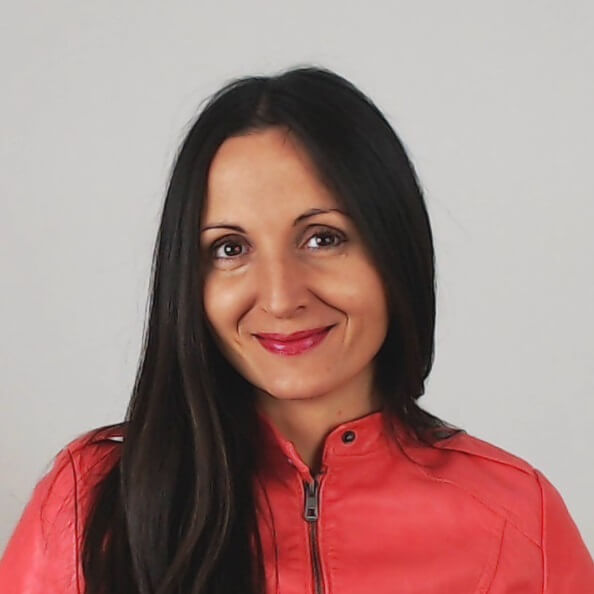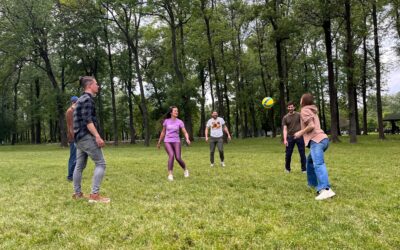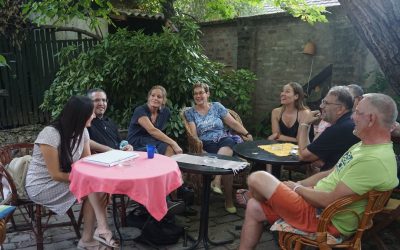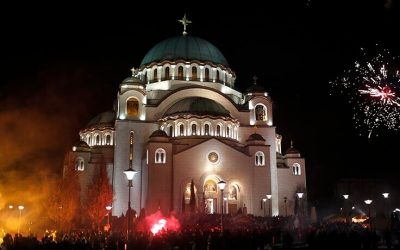Corona Virus in Serbia Fought by Distance Learning
First cases of Corona virus in Serbia, isolation measures and the 1st experiment with distance learning in public schools – a brilliant solution for quarantine
Television programs are never on in my home. We have a TV set, but we use it simply to play movies and shows we want to see. We had never watched news on our TV before – until the night when the president declared a state of emergency because of the Corona virus in Serbia. Before that moment, the epidemic was something happening abroad, away from us. Now it was real.
My mother and brother, who live in different cities, were visiting us that weekend. My husband improvised an antenna and we watched the news together, for the first time. We were shocked. When they were leaving, it felt strange saying goodbye and not knowing when exactly we’ll be able to hug them again.
This made us think of the adversities we’ve been through in the ‘90s. We now have romantic memories of the dark evenings we told stories over candles, or concerts in protest against the bombing. But I realized this was far different. Back then, we were together. Without electricity or heating, in fear or in blessed childish unawareness, but together. Now we’re being isolated in an already isolated hi-tech society.
Corona Virus in Serbia
How did this all start? In December 2019 a disease appeared in China, caused by a new virus from the Corona family. Allegedly, it originates from the animal and meat market in the city of Wuhan in China. From there, the illness spread to other countries to the extent that the World Health Organization declared a pandemic on March 11, 2020.
The first case of Corona virus in Serbia was confirmed on March 6, 2020. It’s a 43-year-old man from Subotica (North Serbia), who traveled to Budapest and visited his ill sister. Returning home, he felt some symptoms and responsibly isolated himself and got in touch with his doctor.
The second case was registered after 3 days: a Chinese man, Serbian resident for years, who had traveled to China for a visit and probably was infected there.
After that, Corona virus started spreading and appearing in different cities throughout the country.
From March 16, 2020, all schools in Serbia are closed, as well as kindergartens, daycares, museums, gyms and theaters. All events and gatherings are canceled. Public transport is partly disrupted. Many flights are canceled. People are advised to stay at home. Since March 18th we have curfew: nobody can go out from 8pm to 5am.
The whole country is blocked, even though we have less than 100 confirmed cases of infected people. (Exactly 97 on March 19, as I’m writing this. You can look for fresh information every day on the official page of the Corona virus in Serbia.)
The people around us are perplexed, somewhat scared. Most of them still have their sense of humor and good spirits, still cracking jokes about garlic and rakija. Others are stacking lots of food and disinfectants, even though the politicians assure us that all necessary supplies will be ensured. (It’s understandable, because we still remember empty shelves from the ‘90s.) Restaurants are encouraged to base their work on delivery service, cafes and bars work with restrictions, but pharmacies and supermarkets will be available.
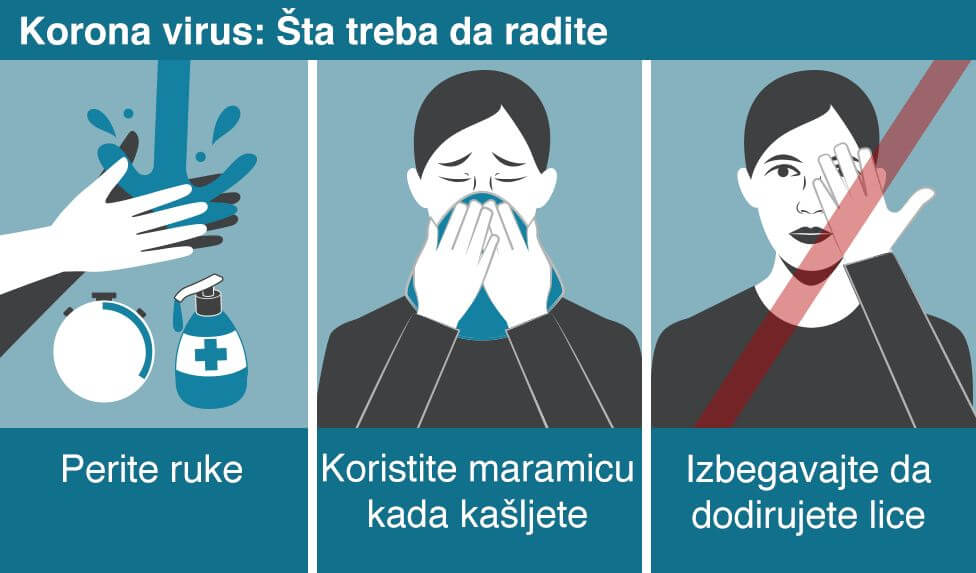
Image source: BBC News na srpskom
Distance Learning against Corona Virus in Serbia
In order to stop the pandemic and to prevent the healthcare system from collapsing, the government declared we have a state of emergency. Before closing the schools, they made sure to organize remote classes, probably until the end of this school year (mid-June).
There are lessons on national television for students of primary schools (6 to 14 years old) and high schools (14 to 18). Their teachers are also working remotely, sending and checking their homework assignments and preparing the children for final exams.
Universities are organizing online courses. Some of them already have accredited online programs, others will record lectures and upload them to online platforms. In any case, all the teachers will stay in touch with their students through regular email correspondence.
View this post on Instagram
Learn in your quarantine!
Now I look at our rarely used TV with different eyes. If our son were only 3 years older, television would have become an important source of education. The school didn’t simply stop. The children are getting the support online, from their teachers, and offline, from their parents. They are expected to study and write homework. (God have mercy on the overwhelmed working parents!)
This is a good lesson for all of us to learn. Along with staying at home and avoiding social contacts, washing hands and making sure not to get and transmit the Corona virus, the best thing we can do is to keep our minds occupied. Not with the pandemic and panic, but with studying and improving ourselves.
We can’t change the boat we’re in, but we can find a way to get the best in the given situation.
Learning a language is always a good thing anyway. It’s a great distraction and fun, it improves your cognitive functions, and when the pandemic is over, you’ll be richer for another language. And learning online not only keeps you safe from viruses, but also enables you to connect with people globally.
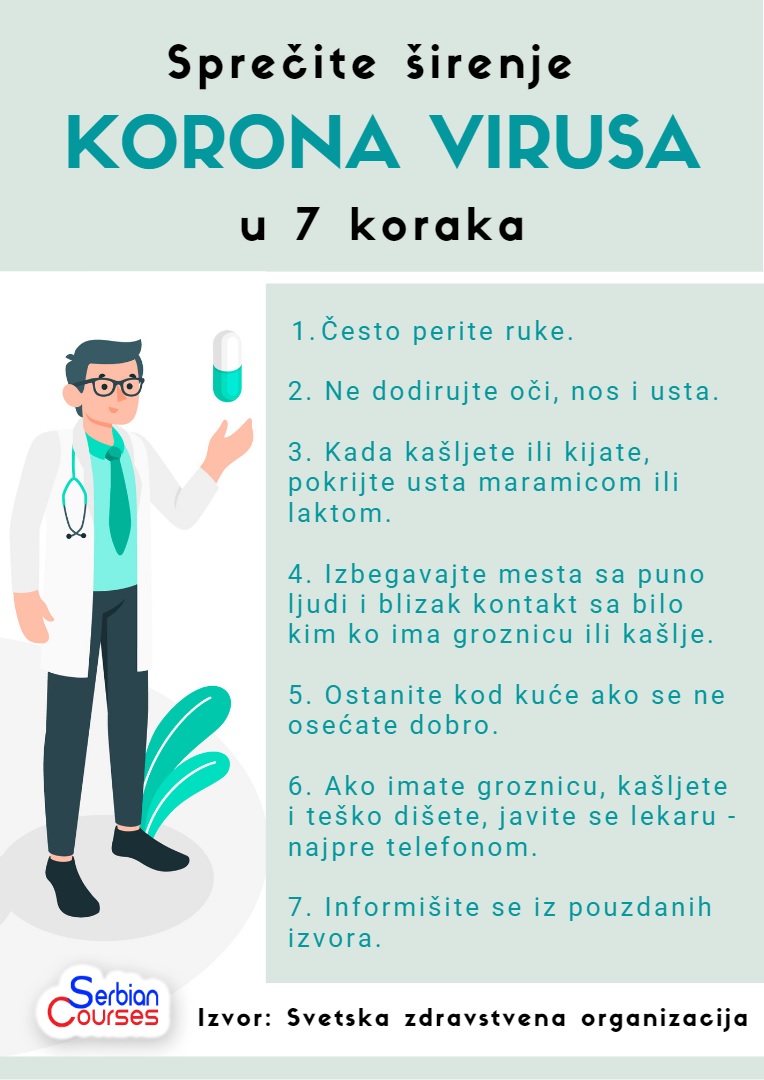
by Magdalena Petrovic Jelic
Founder of Serbonika
Serbian language teacher and entrepreneur, language lover and polyglot, but also a mother and a relentless storyteller. Read more about me.
My mission is to create the best method for learning Serbian. Would you like to learn Serbian with my lessons? Try free.
Serbonika
Najbolja metoda za učenje srpskog jezika
The best method to learn Serbian
The sooner you start learning, the sooner you’ll start talking. Take action now!
Serbian Summer School in Belgrade
Serbonika’s Serbian Summer School in Belgrade is an immersion course combining tourism and gastronomy with language, culture, art, music and history lessons.
The 1st Serbian Language Summer School
Serbian Language Summer School: an intense experience! Language lessons combined with culture classes, tourism, gastronomy. Many activities with one goal: study Serbian and use it to learn about culture and life
Serbian Christmas Traditions in the 21st Century
Preparations for the Serbian Orthodox Christmas, related holidays, Serbian Christmas Eve, Christmas tree, typical food… All about Serbian Christmas traditions today
